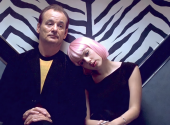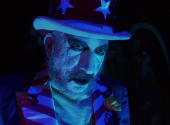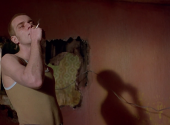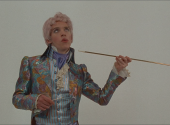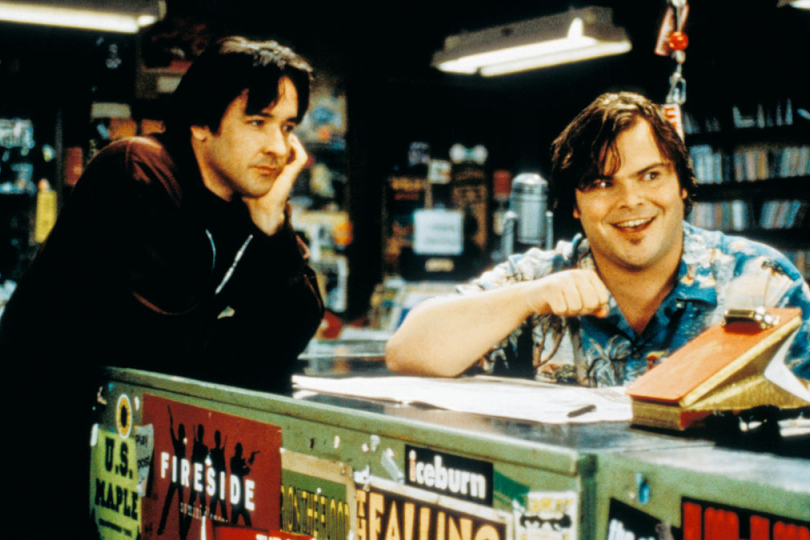
Soundtracks of Our Lives #2: High Fidelity, Making Love With Music
One of the most frequent leitmotifs in the history of cinema are love stories, which with happy or sad endings draw in the viewer and make them feel the characters' emotions. Today we're talking about a beautiful love story intensely wrapped in musical themes – the thrilling and romantic cult film of the 1990s, High Fidelity.
"L'amor che move il sole e l'altre stelle…" (Love that moves the sun and the other stars): this was the last verse of Paradise, which served as the closing line to the celebrated work of the great Italian poet Dante Alighieri, the Divine Comedy. And indeed, love has been a constant force in the lives of all human beings since the world has existed.
The human soul despairs and rejoices in this powerful feeling, and it is impossible to exclude it from our lives. If you think about it, music is similar: it engages us, makes us cry and laugh, and excites us. It is something we need in our daily lives.
And when music and love meet, that's where the real magic happens. This combination inspired Nick Hornby to write his most popular novel, High Fidelity, which was published in 1995 and had almost immediate success. Some years later, Hornby's book caught the attention of the famous British director and producer Stephen Frears.
Frears made his debut in 1971 with the film Gumshoe and was positively recognised by critics for some of his subsequent works such as My Beautiful Laundrette (a 1985 film, based on a screenplay by the writer Hanif Kureishi), and Dangerous Liaisons, a 1988 film directly inspired by the 1782 book by Choderlos de Laclos.
And so, a few years later, in 2000, taking inspiration from Hornby's work, he created High Fidelity which, following the novel's intention, intricately weaves music into its storytelling fabric. The protagonist, Rob Gordon (played by John Cusack), is a record store owner whose life revolves around his eclectic taste in music.
Rob's daily life unfolds in his shop, Championship Vinyl, where he works alongside two of his colleagues, Dick (played by Todd Louiso) and Barry Judd (Jack Black's official debut on the scene); three music snobs that spend their time compiling top 5 music charts, talking about music, and chasing away less musically informed customers.
His deep musical knowledge is indirectly proportional to his success in love. After being dumped by the girl he had lived with for two years, Rob tries to understand his part in the relationship and thinks back to his past failures in love. The last stop on his love journey was Laura (played by the Danish actress Iben Hjejle), his sweet, most recent girlfriend and the cause of his research.
Rob communicates with women via mixtapes; music becomes the only possible means of communication with the fairer sex. Music has an unparalleled ability to trigger memories, making it an essential element in storytelling. Each song selection is imbued with meaning; they are not merely background noise, but rather fundamental tools enhancing character development and plot progression.
The film opens with the 13th Floor Elevators blasting "You're Gonna Miss Me," (also the opening track of their album The Psychedelic Sounds of the 13th Floor Elevators), serving as background for Rob and Laura's breakup scene, and the protagonist revealing that he first listened to pop music because he was miserable, or maybe he was so because he listened to pop music.
Next up is the Kinks classic, "Ev'rybody's Gonna Be Happy", playing in the funny moment where Rob tries to convince Barry to leave his band. A little later in the film, Rob sees Barry and his band live, while they (beautifully) perform "Let's Get It On" by Marvin Gaye. Some songs explain Rob's complicated romantic situations, like the next song on the soundtrack, "I'm Wrong About Everything" by John Wesley Harding.
It is a charming folk piece that provides the background for Rob's story about his shortcomings in his relationship with ex-girlfriend Charlie and it continues to play while he tries to call Laura. Other songs that are a bit nostalgic are also connected to her, like "Most Of The Time" by Bob Dylan, in the scene of Laura's father's funeral. This song also features in the ironic segment where Rob trips over a fence to hide from her.
However, most of the plot is centred on two shoplifters who steal records from Rob's store and have their own band. After listening to their demo, Rob wants to produce them and consequently decides to resume his DJ career after seeing a flyer. The demo song is "The Inside Game" by Royal Trux, who broke up soon after the film but reformed several years later.
The Velvet Underground is used twice in the film, both in sad scenes; "Oh! Sweet Nuthin" plays as Rob hangs up the phone on Laura after a run in the rain; "Who Loves The Sun" is on as Rob desperately searches for the phone number of one of his exes, Alison.
On the other hand, some songs form the backdrop to the daily life at the record store. To name a few, romantic "Always See Your Face" by Love; "Dry The Rain" by The Beta Band, which is enjoyed by some of the shop's customers; "Lo Boob Oscillator" by Stereolab, in the scene where Caroline asks Rob what song it is, and "Cold Blooded Old Times" by Smog in the funny scene where Rob is making one of his usual music lists, and Barry does not want to sell an angry customer a record that he does not like.
A romantic song that is very much tied to Rob's falling in love with Laura is "Fallen For You" by Shiela Nicholls, at a moment when they are both at the bar. As well as the final song, "I Believe (When I Fall in Love It Will Be Forever)" by Stevie Wonder, played during the scene in which Rob makes the perfect mixtape for Laura, and which continues through the final credits.
It is also interesting that some real musicians made cameos in the film: Ian Williams of Battles, Jeff Parker of the Chicago band Isotope 217 and another band from the same city, Tortoise. We can also mention Matt Lux, bassist of Iron & Wine, and Alan S. Johnson, singer of U.S. Maple. An exceptional artistic extra is Bruce Springsteen, who does not appear in the soundtrack and plays the role of Rob's imaginary friend and spiritual advisor for his romantic disasters.
The soundtrack of High Fidelity transcends mere entertainment; it serves as a cultural touchstone for anyone navigating the complexities of love and identity through music. By intertwining personal anecdotes with universal themes, it captures what it means to be human – flawed yet hopeful. Every note carries a story waiting to be told – a reminder that our lives are indeed soundtracks filled with melodies either sweet or sorrowful.
High Fidelity played a significant role in popularizing indie and alternative music genres, introducing audiences to a diverse range of artists and expanding their musical horizons. The soundtrack became a gateway for many to explore new sounds and bands. High Fidelity is a sonic time capsule that captures the essence of music obsession. Its eclectic soundtrack is a love letter to the art of curation.
So, next time you hit play on a killer soundtrack, remember the mixtape magic that High Fidelity brought to the soundtrack game. Similar importance and impact were achieved by the soundtrack to a very different kind of film, which however has become iconic: Goodfellas by the great Martin Scorsese, the topic of our next episode.
How did the soundtrack of High Fidelity impact the cultural perception of music in films? How do love and music coexist in the soundtracks of our days? What makes a film soundtrack memorable? And how do soundtracks become narrative and communication vehicles?
Let us know your opinioin in the comments below!
If you have found an error or typo in the article, please let us know by e-mail info@insounder.org.


